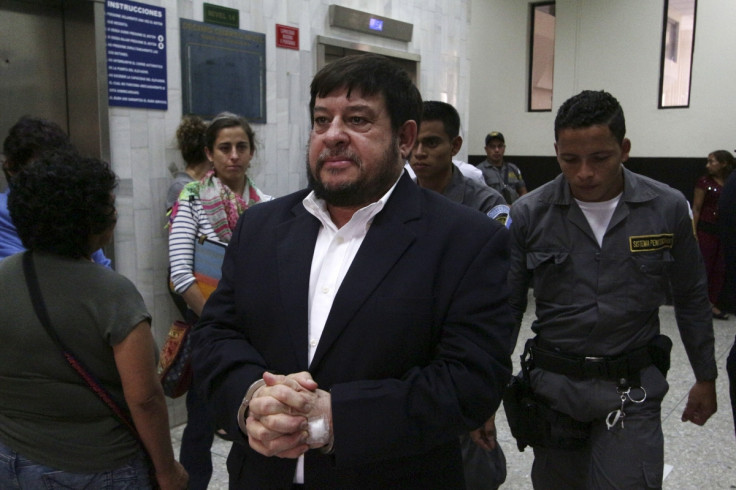Former Mayan sex slaves testify against retired Guatemala military leaders in first trial of its kind

Two former Guatemalan military leaders are on trial for crimes against humanity on charges that they sanctioned the kidnapping of 15 Mayan women to be abused as sex slaves during the nation's bloody civil war. It's believed to be the first time any national court has tried men on charges of sex slavery carried out during an armed conflict.
Esteelmer Reyes Giron, a 59-year-old retired colonel, is accused of "authorising and consenting for soldiers under his command to exercise sexual violence and inhuman, cruel and degrading treatment against Maya-Q'eqchi' women." He is also charged with the murder of one of the victims, Dominga Coc, and her two daughters at the military camp he ran.
Former regional military commissioner Heriberto Valdéz Asij, 74, is charged with sexual violence and the forced "disappearance" of at least nine men. The two allegedly carried out the crimes in 1982 and 1983 in the northeastern town of Sepur Zarco, where the military was deployed.
Indigenous women with their faces and heads covered have begun to tell the court what they suffered as sexual slaves. The survivors are in their 70s and 80s now, and speak the Mayan language Q'eqchi'.
First the army came for their husbands. Fifteen Mayan peasant land-reform activists in Sepur Zarco in eastern Guatemala were killed or forcibly "disappeared" in 1982. Soldiers then returned for the women, and raped them in front of their children, burned down their houses and crops, and forced them to live in shacks next to the local military base.
There, woman were forced to report for 12-hour "shifts" at the military base where they had to cook and clean for soldiers who would then rape them.
Throughout Guatemala's 36-year conflict, state security forces used rape as a weapon of terror, according to the 1999 report of a UN-backed Truth Commission, but no officers had ever faced charges of sexual violence until now.
The war resulted in 200,000 deaths and 45,000 disappearances. Most of the genocide and other crimes targeted Mayans.
"When you look at the victims of the violence in Guatemala, the vast majority [was] indigenous Mayans — about 83%. About 93% of the human rights violations were carried out by the military," Kelsey Alford-Jones, head of Guatemala's Human Rights Commission, told National Public Radio. "So there was definitely an ethnic component."
The Sepur Zarco crimes occurred during the presidency of Ríos Montt, who in 2013 was found guilty of genocide and crimes against humanity, though the verdict was overturned just ten days later by a higher court. He's currently awaiting retrial.
Guatemala's 1960-1996 civil was triggered by a CIA-backed coup after a democratically elected president promised land reforms. Ríos Montt claimed the murdered Mayan peasants were communist guerrillas.
© Copyright IBTimes 2025. All rights reserved.




















